
Honorary Doctoral Degrees
The University Board may appoint honorary doctors (doctor honoris causa) either on its own initiative or by recommendation of a academic community. The basis for such an appointment shall be either special scientific efforts or efforts of special significance to the university community.
Appointed honorary doctoral degrees
Johan Rooryck
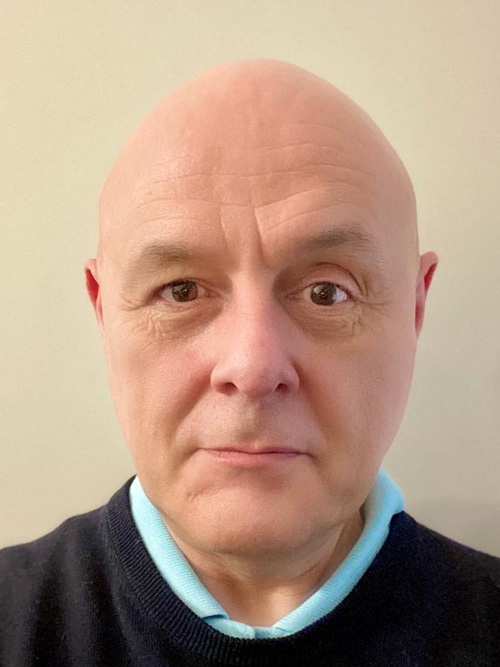
Professor
Honorary Doctor 2022
Johan Rooryck, Professor in French Linguistics at the University of Leiden in the Netherlands is awarded an honorary doctorate for his work on open publishing and science. He was the Editor-in-Chief of the leading international language journal, Lingua, at Elsevier from 1999 to 2015. He gained global fame within Open Access circles when he and his entire editorial team broke away from Elsevier. They went on to found the Glossa journal at the Open Library of Humanities in 2015. Overnight, linguists started submitting their articles to Glossa rather than Lingua. Glossa is now the undisputed number one journal in its feel and Rooryck remains the Editor-in-Chief.
Rooryck founded the umbrella organisation Fair Open Access Alliance in 2016 with the aim of encouraging researchers to change the publishing landscape within their fields.
Hans Ragnar Mathisen
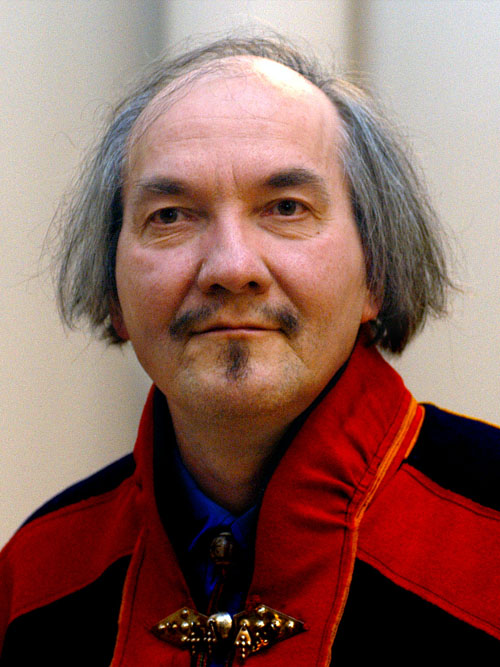
Artist
Honorary Doctor 2022
Hans Ragnar Mathisen / Elle-Hánsa / Keviselie is awarded an honorary doctorate for his overall work as an artist, his work on Sami maps and the mapping of Sami place names, his focus on preserving and developing Sami drums, his authorship and his efforts to organise, develop and preserve Sami culture in Norway, the Nordic region and Sápmi.
Through more than 50 years of artistic work, Mathisen has highlighted Sápmi as a separate geographical area within the Arctic and has shed light on previously invisible Sami culture in Norway. His artistic work is based on a broad scientific approach. Since the burgeoning start of the University, Mathisen has collaborated with researchers in various fields and his many artistic expressions have helped influence and shape the Arctic University of Norway.
Dame Veronica Ann Courtice

Founder of the University of Cambridge Institute for Sustainability Leadership
Honorary Doctor 2022
Dame Veronica Ann Courtice, founder of the University of Cambridge Institute for Sustainability Leadership, where she was a director between 1989 and 2021.
Awarded an honorary doctorate for her work in developing leadership and sustainable financial development through the Institute for Sustainability Leadership. The Institute has an interdisciplinary approach and focuses on six priority areas that are considered critical to the work on achieving the UN Sustainable Development Goals (SDGs): sustainable financing, economic innovation, inclusion and diversity, natural resources, cities of the future and leadership for sustainable development.
She has received a number of accolades for her efforts and has been appointed Dame Commander of the British Empire (DBE) by Queen Elizabeth and Lieutenant of the Royal Victorian Order (LVO). She has also been awarded the Stanford Bright Award for Environmental Sustainability.
Katherine Richardson
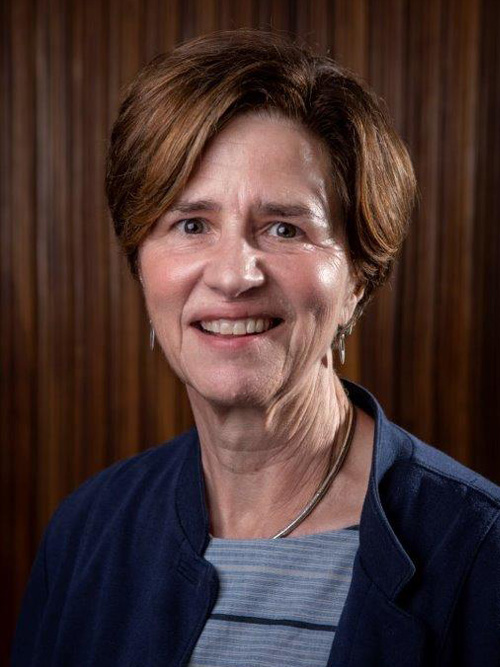
Professor
Honorary Doctor 2022
Katherine Richardson, Professor in Biological Oceanography at the University of Copenhagen and Head of the Sustainability Science Centre at the University of Copenhagen.
Awarded an honorary doctorate for her years of research within biological oceanography, climate change and sustainability. Richardson is a prominent polar researcher with a particular interest in the link between the climate, ocean ecosystems and biodiversity. She has been interested in the carbon cycle in the ocean and has put this research into an Earth-system context. Derived from this work, she has also looked at how to define safe boundaries within which people can operate from a sustainability perspective.
Richardson has been a female role model during a period of change in which women were given little opportunity to participate in voyages and field campaigns within polar and marine research and is considered a pioneer within the field of sustainability science.
Rolf Skår
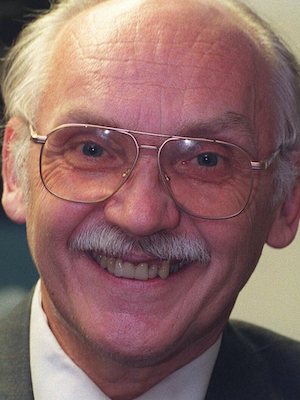
Computer scientist and IT entrepreneur
Honorary Doctor 2021
The background for the appointment is Rolf Skår's long-standing scientific and political work. Skår is an international pioneer in the development of modern information technology and has played a central role in building the technical-scientific environments within the space field in northern Norway. For many years, he has combined business activities within Information technology with his top academic position at NTNU.
- Skår's contribution to Information technology development has also influenced the activities at UiT, which today has several outstanding research environments within these disciplines, says Rector at UiT, Anne Husebekk.
UiT has a center for research-driven innovation in remote sensing (CIRFA) and a space physics environment which for more than 40 years has been involved in the EISCAT project with studies of the atmosphere, and which is now taking new scientific steps through the development of EISCAT-3D in Skibotn.
Gro Harlem Brundtland
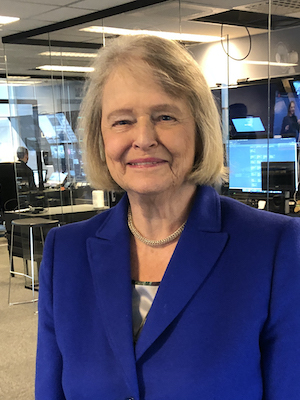
Doctor and former Prime minister
Honorary Doctor, 2021
The reason for the appointment of Brundtland is her long-standing political and scientific work, characterized by a knowledge-based approach to the major societal issues, nationally and internationally.
Brundtland was Norway's first female Prime minister and has also been Minister of Environment and leader and deputy leader of the Labor Party. Internationally, she is best known for having been head of the World Commission on Environment and Development (1983–87), which, among other things, introduced the concept of sustainable development. She was the head of the World Health Organization (WHO) from 1998 to 2003.
- Gro Harlem Brundtland has been and still is an important inspiration for the world community in the field of environment and health. With her commitment, she has been a clear promoter of international cooperation for human rights, says Rector of UiT The Arctic University of Norway, Anne Husebekk.
Olav Holt
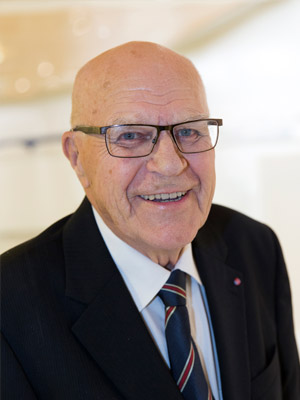
Holt was elected rector in 1973 and led through this position UiT in a pioneering time where visions and ideas were to be translated into specific academic activities. He guided the university through this demanding time in an exceedingly good way, not least through his academic position and his vast contact network. Today he is considered one of the pioneers behind the establishment of the university.
In 2003, Olav Holt was appointed a knight 1st class of the Order of St. Olav.
- This is truly an amazing joy and honor. It was unexpected, and a big surprise when I got the message. We were only supposed to be here for two years when we came to Tromsø in 1966, but it lasted 35 years. 35 good years. Even though we are doing well now, those years were probably our best time. Thank you very much, said a moved Olav Holt in his acceptance speech during the Honorary doctorate award on 26 September 2018.
(source: uit.no)
Richard Horton
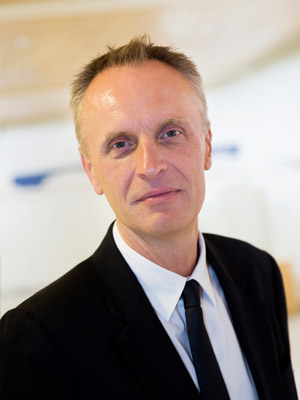
Horton has written for other journals, including The Observer, The Times Literary Supplement, and The New York Review of Books. He has also written a book on the controversy in modern medicine, entitled: Second Opinion: Doctors, Diseases and Decisions in Modern Medicine (2003).
Also from the podium during the Honorary doctorate award on September 26, 2018, Richard Horton showed his burning commitment:
- In my country, where xenophobia is growing, it has led to a rejection of interdependence and international exchange. In the end, it ended with the vote to leave the EU, the union that was shaped by the deaths of hundreds of thousands during World War II. It is with deep sorrow and remorse for many of us that we have soiled the memory of those who died for freedom during that war. So in this moment of dangerous isolation and populism, it is important that we remember the values of a university like UiT The Arctic University of Norway, and what those values stand for. They stand for equality, inclusion, strengthening through learning and solidarity. Not just see what we can do for ourselves and our own country, but what we can do for others in their community. Especially for those who live in suffering, in conflicts, who are homeless, forced to flee, and those who experience occupation. UiT is a good global university and we should celebrate their international significance. The university's values have never meant more, and I dedicate myself to these values, said Horton.
(source: uit.no)
Mari Boine
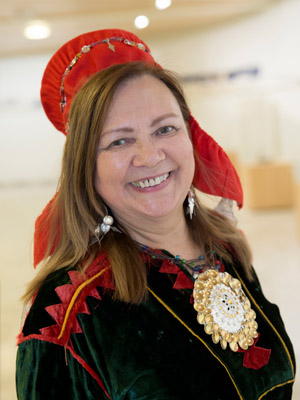
- Thanks to UiT for awarding me an Honorary doctor. Being appointed can be explained as a strong signal of recognition of my work over decades. It makes my Sami heart happy. I have lived with music, and in music, for more than 30 years. To me, music is pure medicine. It has transformed me from a shy, indigenous young person, full of self-hatred and anxiety, to a brave and outspoken artist. It has changed me to become a proud and strong indigenous woman, said Mari Boine in her acceptance speech when she received the Diploma on 26 September 2018.
(source: uit.no)
Arieh Warshel
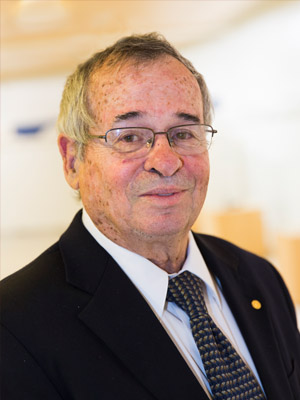
Arieh Warshel was very pleased with the award as an Honorary doctor, and received the Diploma during the Honorary doctor ceremony on September 26, 2018, the same week as UiT celebrated its 50th anniversary:
- Thank you very much for this great honor and for letting me come. UiT is a university with great potential, said the professor, adding:
- I am very happy to be back here and humbled by this award. When I started studying in Israel, I did not know what to choose. A counselor at the school said that I should study chemistry since I had such good eyesight, I did not wear glasses at the time. Since I had no other idea, I chose chemistry. Now in recent times, I can argue that he thought I had good eyesight in a figurative sense. The ability to look beyond the horizon and in the right direction, Warshel said in his acceptance speech.
(source: uit.no)
Oran R. Young
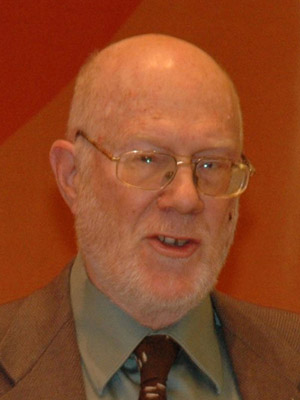
Oran R. Young has authored several books and published many research reports on international governance and cooperation in the Arctic.
“This is a great honor. In many ways, Tromsø has become the capital of the Arctic and UiT has earned the name “the Arctic University of Norway”. I have had a long and good relationship with the university and I am grateful when this is recognized through my honorary doctorate,” said Young when the appointment was announced to him.
(Source: uit.no)
Trond Mohn
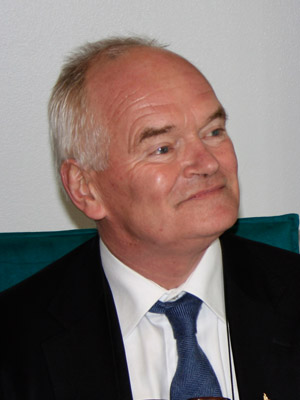
In 2014, the businessman donated 300 million NOK as unrestricted funds for research to UiT. This is the largest single donation received by the university to date. In 2007, he made another donation of 100 million NOK to UiT. The fund is managed by Tromsø Research Foundation (TFS) which aims to support and fund long-term, basic research and recruitment in benefit of research at UiT. The foundation may also grant funds for similar purposes at other institutions when they collaborate with UiT. So far, the fund has supported more than 100 research projects.
“Research is our future. The Norwegian people appreciate a decentralized way of living and it is, therefore, important to increase competence in the northern region,” said Mohn as a comment to his donation to UiT. Mohn prefers to give donations without earmarks as he believes the researchers are better suited to manage the funds.
(Source: uit.no)
Laila Stien
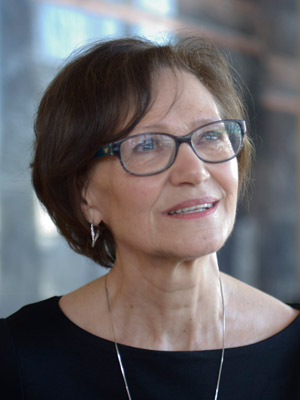
Her first translation of Sami literature was based on a request to translate a collection of poems by Synnøve Persen in 1982.
“I was skeptical at first because I did not think I would manage. Translating fiction is not just about conveying a meaning, it is just as much about recreating a tone in a different language. Sound and atmosphere are central. But I succeeded, so I continued to translate between my own writing projects and I have had the pleasure of contributing to Sami literature being accessible to more people,” said Laila Stien when her appointment was official.
(Source: uit.no)
Jonas Gahr Støre
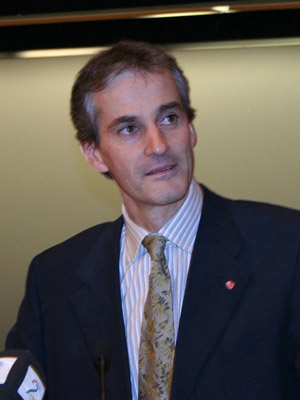
(Source: uit.no)
Narve Bjørgo
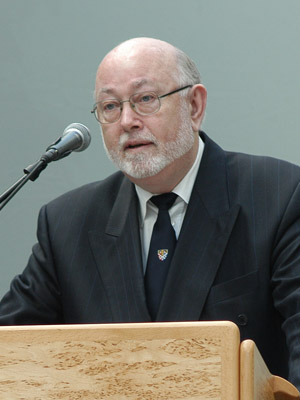
“When I arrived from Bergen in the 1970s, the University of Tromsø was an institution in the middle of a hectic building process. We were only two lecturers in the field of history and our academic and administrative work was very demanding, especially the first year. But it was also very exciting. We were given challenges and opportunities we could only dream of had we remained at our original universities. My family and I had only planned to stay for one year in Tromsø but we ended up living here for 20 years. Those were the best years of my career so when I am granted such an honor, I am deeply touched and very happy,” said Bjørgo when his appointment was made official.
Today, he is a reputable historian with a considerable scientific production to show for. Narve Bjørgo was also strongly engaged in the University of Tromsø as a political project and he believed the university had to be anchored in its local society and be of relevance to its region. Bjørgo was also the first chairman of the NOKUT board from 2003. He was suggested as a candidate for an honorary doctorate by the university library and the Department of History at the Institute for Social Sciences.
(Source: uit.no)
Ole Henrik Magga

“It has been a pleasure working with the University of Tromsø. I started in 1977 and served as a lecturer, examiner and advisor,” said Ole Henrik Magga when his appointment was known.
In 1998, Magga became the first president of the Sami Parliament of Norway. He served for two four-year-periods. Dialog was an important factor in his political career and his efforts strengthened the Sami Parliament as a political institution. He promoted the cause of indigenous peoples in other parts of the world as well and was therefore elected as the first chairman of the United Nations Permanent Forum on Indigenous Issues.
Ole Henrik Magga was suggested as a candidate for the honorary doctorate by the Center for Sami Studies. Head of administration Else Grete Broderstad was very pleased with his appointment. “Being a highly respected academic and our foremost indigenous leader, Magga is a great source of inspiration for our students and researchers. His extensive work with indigenous people coincides with the university’s priority areas and emphasis on indigenous related topics,” she said when his appointment was official.
(Source: uit.no)
Barbara Neis
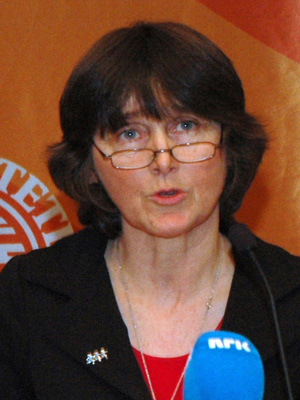
Her research focuses on the area where social science touches natural science and over the last years, where social science touches medical science. She has used feminist theory in relation to globalization theory, local community theory and the more general theory of sociology, which is her original academic field. For the past 20 years, Barbara Neis has worked with employees at several of the UiT faculties and was suggested as a candidate for the honorary doctorate by the Center for Women’s and Gender Research.
(Source: uit.no)
Steven Pinker

(Source: uit.no)
Rodolfo Stavenhagen
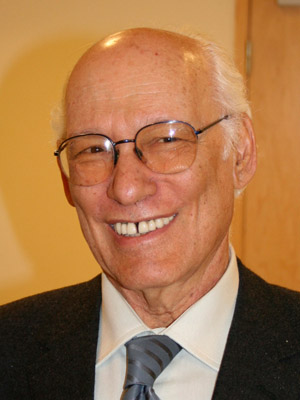
(Source: uit.no)
Jan Raa
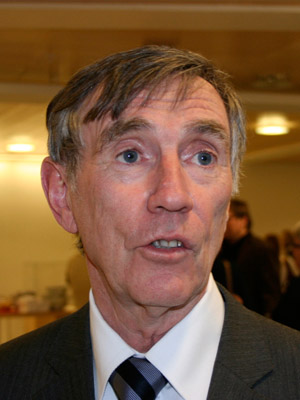
“I was lucky to be approached by such fantastic, talented students. If I have contributed in any way it must be by educating candidates who have made a difference to the region and the industry. I am very grateful for the opportunity the university has given me to develop myself, even though I am such a scatterbrain. It has been a continuation of happiness. I can't be sure, but I don’t think I would have gotten the same opportunity today,” said Raa when his appointment was official.
Raa is one of the leading academic entrepreneurs in Tromsø; In 1984, he developed the company Biotec (the present Biotec Pharmacon) for producing flying squid, where he was research director for a long period; In 1987, he established Norfico for research on aquaculture; in 1992, he established Nicanor for export to Nicaragua and in 2002, he established Calanus AS for exploiting Calanus. Jan Raa was part of the interdisciplinary team that developed the Hitra-vaccine, the UiT product-development that has given the highest socio-economic profit.
In 2010, Raa was decorated as a Commander of the Royal Norwegian Order of St. Olav for his contribution to research and development in the field of marine biology. “Raa’s innovative contributions have modernized the fisheries and aquaculture industry and given it a platform for further development,” read the arguments for his appointment.
(Sources: uit.no, Wikipedia, biologist and pioneer Sylvia Labugt)
Johan P. Olsen
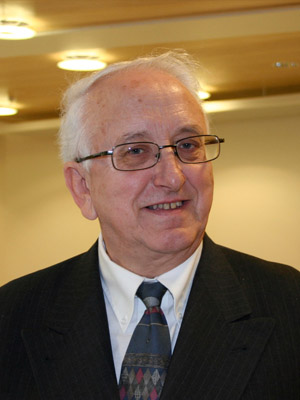
(Source: uit.no)
Nawal el Saadawi
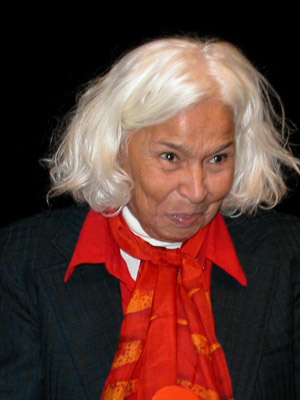
(Source: uit.no)
Tor Hagfors
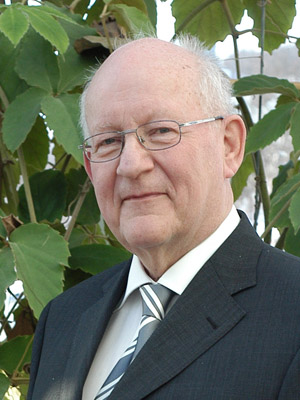
(Source: uit.no)
Erica I.A. Daes
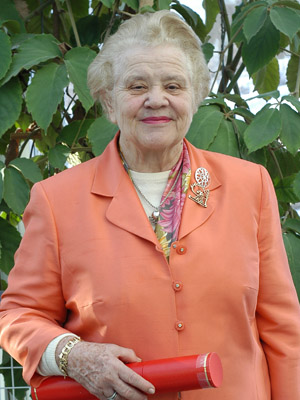
(source: uit.no)
Ottar Brox
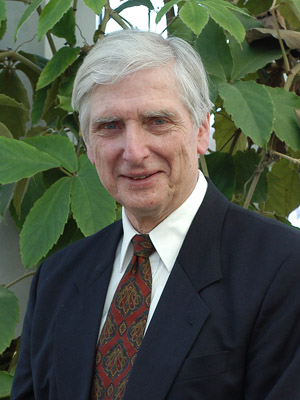
Ottar Brox is considered one of the pioneers behind the University of Tromsø.
(Sources: uit.no)
Mordechai Vanunu
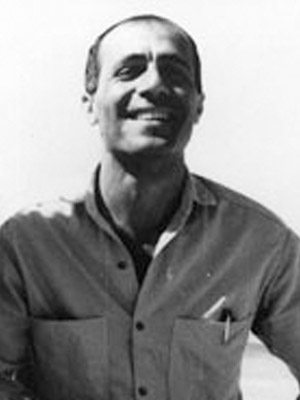
Vanunu was a Moroccan Jew and moved with his family to Israel in 1963. After three years of military service from 1971-74, he studied physics at the University of Tel Aviv before he, in the fall of 1976, started working as a nuclear technician at Negev Nuclear Research Centre near the city of Dimona. According to military experts, this institution produced nuclear weapons. He stopped working there in 1985 and in the fall of 1986, he leaked to British newspapers that Israel had a secret nuclear arsenal. Right after, he was abducted from Rome, where he was staying, by Mossad agents. He was taken to Israel and before a closed court, condemned to 18 years in prison for treason. He spent 11 of these years in isolation. In April 2004, he was released with strict communication and travel restrictions. He was arrested the same year for breaking these restrictions and was put under house arrest.
Vanunu’s actions are rooted in the tradition of civil disobedience as he leaked information about Israel’s secret nuclear arsenal out of moral convictions. His actions and the attention they caused have become a symbol of loyalty dilemmas and an individual’s responsibility.
(Source: uit.no)
Dalai Lama

In the fall of 1950, the Chinese army invaded Tibet and, after suppressing sporadic resistance from the Tibetan army, it reached the capital Lhasa in 1951. An agreement was made between the Tibetan and the Chinese government. This was the first treaty between the two countries since 821. However, the disturbances continued and Dalai Lama was forced to live in exile in India due to the tension that occurred after the riots started against the Chinese in 1959.
At the commencement ceremony, Dalai Lama expressed his strong belief in education as a means against the violence that pervades our society today. “We have to emphasize non-violence and dialog in all levels of education, from day-care to university. The students’ immediate reaction to conflict should be dialog,” said Dalai Lama, and joked about receiving the university’s highest degree without undergoing any hard work or study.
Dalai Lama was awarded the Nobel Peace Prize in 1989.
(Sources: uit.no, Store Norske leksikon)
Suzanne Romaine
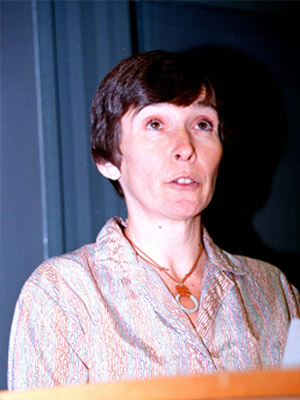
Suzanne Romaine was particularly interested in Norway because it is considered to be one of the most gender equal countries in the world. She paid close attention to language and gender issues and research done in this field at the University of Tromsø. Romaine visited Tromsø on numerous occasions and worked with many researchers at UiT. She was Merton Professor of English Language at the University of Oxford from 1984 until she retired in 2014.
(Sources: the UiT Archives, Tromsøflaket)
Robert Paine
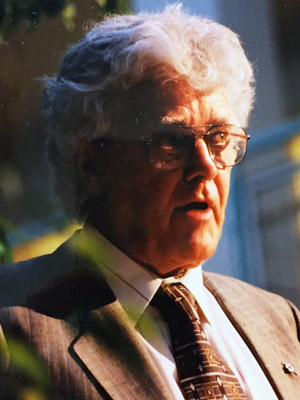
(Sources: the UiT Archives, Tromsøflaket, uit.no (obituary by Trond Thuen))
Mikhail Gorbatsjov
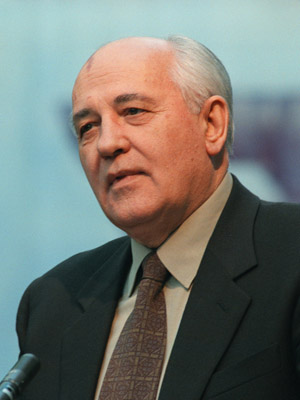
“People who have had the courage to make their own way need support and encouragement. I am touched and extremely grateful,” said Mikhail Gorbatsjov when he received the honorary doctorate at UiT, Thursday May 14, 1998.
As leader of the Soviet Union, his efforts laid the foundation for the Cold War detente. In October 1987, Gorbatsjov visited Murmansk where he held his great, famous speech on international collaboration in the High North and Arctic area. His speech can be seen as an important preparation to the idea of regional collaboration in the north.
“He has influenced our enterprise and academic profile to a much greater extent than most of us, and even he himself, is aware of,” said Tove Bull, rector at that time, in her speech to Gorbatsjov. She pointed out that open borders between Norway and Russia give researchers access to new research materials and research areas. A closer collaboration also leads to culture contact and mutual understanding, which were important premises for the detente process that happened during the 1990s.
(Sources: the UiT Archives, Tromsøflaket)
Salman Rushdie

“The fight for the freedom of speech begins the moment someone says something you dislike or disagree with. And it does not end there. We find many things, written or uttered, to be repulsive but we cannot thereby forbid or censor it. It is better to keep it an object of discussion because it is impossible to unthink what has already been thought,” said Rushdie in his speech of gratitude when he visited UiT in the spring of 1998.
Rector Tove Bull pointed out that Rushdie's cause is also the university’s cause, for research and education cannot proceed without the underlying element of freedom of speech.
(Source: Tromsøflaket)
William Nygård
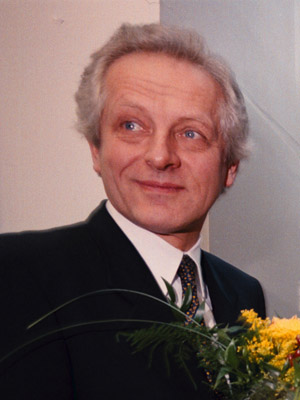
Tove Bull, UiT’s rector at that time, said William Nygård’s appointment was important to the university because its very existence depends on the freedom of thought and speech.
“All research must be based on the permission to think freely about one's research and its results. Nygård and Rushdie both paid a price for their freedom of speech, which shows that freedom of speech cannot be taken for granted, but must be fought for and defended,” she said.
(Source: Tromsøflaket)
Rigoberta Menchú Tum
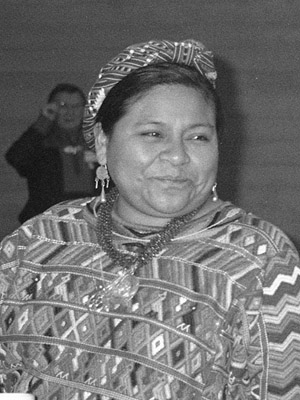
Rigoberta Menchú Tum was born to an indigenous family in Guatemala. She was appointed an honorary doctorate from UiT in 1996 for her ceaseless work for indigenous rights, human rights and for being a spokeswoman for the world’s oppressed peoples. It is not a coincidence that UiT wished to honor her; UiT holds a specific obligation and privilege to support the Sami language, education, research and culture, and thus, has a special involvement in topics related to indigenous people.
Rigoberta Menchú Tum received the honorary doctorate on behalf of Guatemala’s women, who hunger for knowledge, but also have something to teach us in return;
“Much of our knowledge is in the process of being discovered but one day we will show something to the world,” she said when she received the diploma and added that the honorary doctorate also belonged to the Sami people.
Rigoberta Menchú was born to a poor indigenous family of K'iche' Maya descent in a small mountain village. She grew up being discriminated against her minority background and she decided to dedicate her life to publicizing the rights of Guatemala's indigenous feminists and to promoting social reforms in her country. Both her parents and her brother were murdered for their efforts to promote the rights of the indigenous people. A second brother died from malnutrition and a third brother from being poisoned by pesticides. Menchú, herself, was forced into exile and escaped to Mexico in 1981, where she continued to fight for the rights of the indigenous farmers in her home country. Despite her tragic background, she remains a symbol of the non-violent movement against oppression.
Menchú Tum learned how to read and write at the age of 20, and in spite of having a very short education, she was appointed ten honorary doctorates. Menchú Tum was also awarded the Nobel Peace Prize in 1992.
(Sources: the UiT Archives, Tromsøflaket)
Carsten Smith

When the Department of Law Studies opened in 1987, Sami rights was one of the mandatory subjects of the vocational studies. On the opening ceremony of the department, Carsten Smith expressed that legal practitioners had not fully understood their responsibility to study Sami rights; “It is in light of this that you should judge the important decision we have made here in Tromsø to establish Sami rights as a separate field of law included as a mandatory part of the Northern Norwegian law program.”
Smith was also chairman of an expert team which proposed a Nordic Sami Convention in 2005. In 2006, he became chairman of the Inshore Fishing Committee for Finnmark, which was established to consider the sea-fishing rights of the inhabitants of Finnmark.
(Sources: the UiT Archives, Store norske leksikon, Ravna, Ø. (2012) Samerett og samiske rettigheter i Norge. I: Henriksen, T. og Ravna, Ø. (red) Juss i nord: Hav, fisk og urfolk, Gyldendal, s. 148-173)
Desmond Mpilo Tutu

Archbishop (South Africa)
Honorary Doctor, 1994
Desmond Tutu was appointed honorary doctor at UiT for his work for freedom of expression and peace work, and against racism. The appointment is justified by the importance he has had for the democratization of South Africa and must be seen as an expression of solidarity between people in the northern and southern hemispheres.
Desmond Tutu is a church leader and activist and became world-famous in the 1980s for his opposition to apartheid (a political ideology and a system of racial segregation and discrimination). At the same time, there was also a lot of activity at UiT against apartheid, and the university took part in the academic boycott of South Africa, in addition to declaring the entire university an anti-racist zone. After the regime was overthrown in 1994, UiT got an academic collaboration with the country.
Desmond Tutu has also chaired the Truth and Reconciliation Commission in his home country (1996-99). It was the South Africans' way of restoring justice in a ravaged country and meant that those who had perpetrated under the apartheid regime had to tell the truth in full public about what had happened. About murder, torture, abductions, and rapes. It was a prerequisite for the country to be able to grant the individual amnesty.
- Without the whole and complete truth coming forth, the victims of oppression would be made victims again. Saying sorry is one of the most difficult things there is. The oppressors had to tell about what they had been involved in and apologize on TV. For some of them, it may have been the first time their own family heard about what they had done. Even the worst of us are children of God and have the opportunity to change, Tutu explained, when he visited UiT in September 2004 in connection with the opening of the academic year and the unveiling of the bust of Mahatma Gandhi outside the Center for Peace Studies. It was exactly ten years since he was appointed honorary doctor.
Desmond Tutu also received the Nobel Peace Prize in 1984.
(Sources: UiT's archive, uit.no)
Parzival Copes
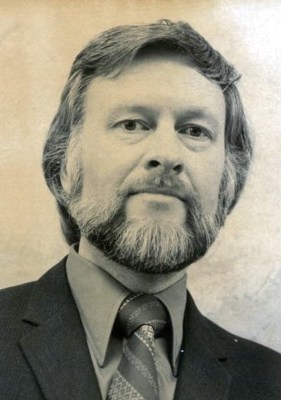
“I am most appreciative of the honor that the award of this degree would bestow. I will be very pleased to accept the degree and to be present for the award on the University´s Anniversary Day,” wrote Copes in a fax to Harald Overvaag, the university director at that time, in June 1993 when he was notified about the appointment.
Parzival Copes spent his academic career working on socioeconomic issues related to the development of fisheries and fishing communities. His research in Atlantic Canada has had great influence on similar research conducted in Norway and other countries. Copes enjoyed international recognition for his academic work within this field and received many awards. In 1992, he published his research The Resettlement of Fishing Communities in Newfoundland, which demonstrated the outcome of a balance between economic growth and resource management. Parzival Copes visited UiT on several occasions and many employees at NFH and ISV have stayed at Simon Fraser University, where he worked for several years until he retired in 1992.
(Sources: the UiT Archives, Simon Fraser University, Wikipedia)
Helga Maria Hernes
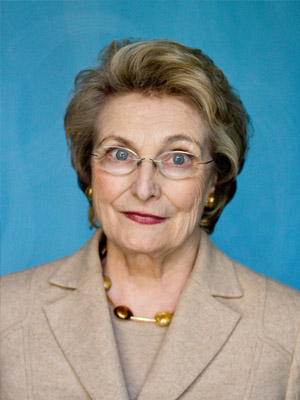
Helga Hernes was born in West-Prussia in 1938 and completed her Ph.D. in the USA in 1970. During the 1970s, Helga Hernes contributed considerably to the emerging field of women’s studies, which over the coming decades would become one of the strongest forces for a new orientation of the social sciences. Her most important works were published during the 1980s and focused on the relationship between the state and feminism. Her most famous works are The State: Women No Access? (1982) and Welfare State and Woman Power: Essays in State Feminism (1987). She was head of research at the Norwegian Research Council for Science and the Humanities in the department of women’s studies, where she oversaw the research of women’s studies in the social sciences. The most impressive result of her time in that role is the 18-volume work Women’s Living Conditions and Life-Courses. Helga Hernes has held many political duties and is known for chairing the Gender Equality Committee that prepared the first recommendation for gender quota as a political instrument.
(Sources: the UiT Archive, Norsk biografisk leksikon, Kjønnsforskning.no)
Ragnhild Sundby
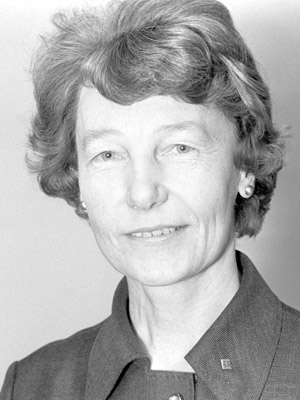
Ragnhild Sundby initiated the debate on pollution in Norway by introducing Rachel Carson’s book Silent Spring (1962) to the Norwegian public. She worked hard to ensure the protection and conservation of Norwegian nature. In 1959, she was granted a scholarship to travel to the University of California to work with Paul de Bach, the leading expert on biological pest control at that time. The work led to the publication of Competitive Displacement Between Ecological Homologues, which presented convincing examples from natural environments demonstrating that two or more species with identical ecological niches are unable to cohabit. This established that whichever species adapts best to its environment will outcompete the other species in the same area. Her book is among the few Norwegian works regularly cited in modern textbooks on ecology.
Ragnhild Sundby was the first female professor at the Norwegian University of Life Science. She was also a distinguished leader of the Norwegian Society for the Conservation of Nature, where she worked actively for a more balanced use of herbicides, pesticides and fertilizers in industrial agriculture. She was concerned with the environmental impact of the oil industry in the North Sea, energy policy, issues related to the hydroelectric development and acid rain.
(Sources: the UiT Archive, Norsk biografisk leksikon, Wikipedia)
Georg Henrik von Wright
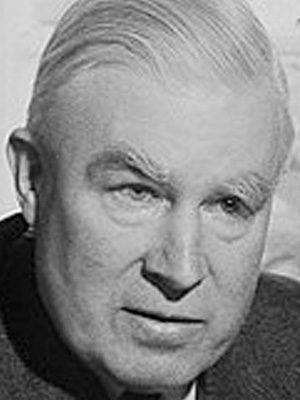
“Yesterday, upon my return from Tromsø, I received a letter with the announcement that the university wishes to honor me with a doctorate degree at its 25th anniversary celebration on 3 September 1993. I accept this gesture of respect with sincere appreciation,” wrote an excited von Wright in a telefax to the university director Harald Overvaag, when the announcement was official.
Georg Henrik von Wright received international recognition for his Ph.D. thesis The Logical Problem of Induction (1941). The problem of induction concerns the problem of support or justification of inductive methods. His research areas included logic, philosophy of science, ethics and philosophy of culture. His most important contribution to the field of logic and ethics is in the field of deontic logic, which is concerned with the normative concepts of permission, prohibition, obligation and right. Georg von Wright published many works in Swedish, Finnish, English and German, such as his book The Myth of Progress that questions the concept of progress. The significance and renown of his work were further highlighted as he assumed a professorship formerly held by the renowned philosopher Ludwig Wittgenstein (1889–1951). He later managed the literary heritage of Wittgenstein.
(Sources: the UiT Archive, Store norske leksikon)
Torstein Bertelsen

“Thank you so much for your kind letter announcing my appointment of an honorary doctorate at the University of Tromsø. I joyfully accept this honor and will, of course, attend the commencement,” wrote Bertelsen in his response letter to UiT.
Torstein Bertelsen was also appointed an honorary member of the Sami Medical Association in 1984 and 1st class knight of The Royal Norwegian Order of Saint Olav in 1988.
(Sources: Fulsås, N. (1993) University of Tromsø 25 years, University of Tromsø, the UiT Archives, På Høyden (UiB))
Jørn Dyerberg
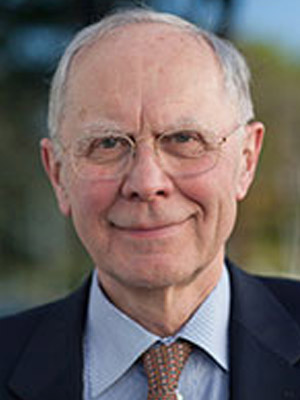
“I am delighted to receive this honorary degree that confirms the ties I have had to the University of Tromsø for so many years,” wrote Jørn Dyeberg as a response to the news of his appointment.
During the 1970s, he traveled to Greenland with H.O. Bang to conduct research on Inuit eating habits. The Inuits had a large intake of fish and shellfish, and the study of their diet led to the discovery of the role of omega-3 fatty acids for health and disease. Dyerberg and Bang were the first to demonstrate that the low incidence of cardiovascular disease among the Inuit population could be caused by the high number of Omega-3 fatty acids in their blood. The results of this research created great interest in the biological effects of long-chain Omega-3 fatty acids of marine origin. Because of Jørn Dyerberg’s research results, many countries now recommend that we include more fish in our diets to ensure that the body gets enough omega-3 fatty acids.
(Sources: the UiT Archives, University of Copenhagen)
Amy van Marken
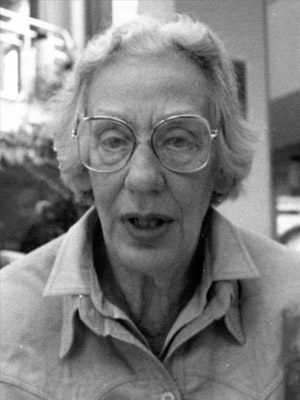
“Those were glorious days and I remember them with great joy. I am very impressed by the university’s current position within the region and by its specific strategy for the future,” wrote Amy van Marken in her letter of gratitude to Rector Narve Bjørgo, dated 20 September 1987.
In 1930, Amy van Marken commenced her studies in Scandinavian literature at the University of Amsterdam and she completed her bachelor degree six years later. When the Second World War broke out she was forced to take a break in her studies, but she continued to lecture at the Adult Education Association until her courses were banned. She then proceeded to host secret literature courses in her own home, with Danish and Norwegian resistance literature as part of the curriculum. In 1956, she assumed a permanent position as lecturer of Scandinavian languages at the University of Groningen. In 1970, she completed her Ph.D. with a dissertation on the female characters in Knut Hamsun’s novels. These novels nourished her interest for the northern regions. The most important expression of her Arctic engagement was her contribution towards the Arctic Centre of Groningen. She was one of the pioneers who initiated the center’s establishment in 1970 and was a member of the board from 1972-82, the last two years as its chairman. One of the first events hosted by the Arctic Center was “Norwegian Week” and an international symposium on the Sami people of the North Calotte was an important part of the event. In 1975, Amy von Marken became a professor of Scandinavian language and literature.
(Sources: the UiT Archives, Rijksuniversiteit Groningen, Wikipedia)
Peter F. Hjort

It was no simple task to develop a new medical program in Northern Norway and many believed it was a futile project. The Southern Norwegians were harsh in their criticism; “a university program cannot possibly be established with the same objective as a herring oil factory.” There was also local unwillingness; neither of the hospitals in Harstad or Bodø showed great enthusiasm for the project.
Hjort served as rector for a very short period because of a conflict with the students, but he continued to work as a professor at UiT until 2001. In honor of the university’s first rector, UiT hosts an annual seminar in his name, the Peter F. Hjort seminar, where the collaboration between academic fields and the private and public sectors is strengthened and developed.
(Sources: Store norske leksikon, Fulsås, N. (1993), the University of Tromsø 25 years, the University of Tromsø)
Kjell Bondevik
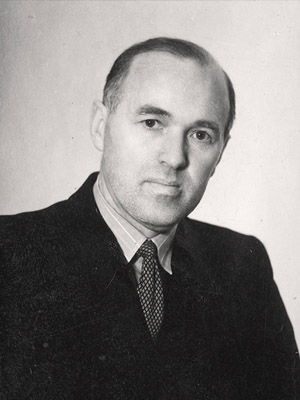
When Bondevik served as minister of church affairs and education, universities were built in Tromsø and Trondheim. The Government implemented several new reforms to the education sector, including the subsidization of private schools, the establishment of 9 years of mandatory schooling, the granting of scholarship to students living independently and the establishment of new regional colleges.
Kjell Bondevik majored in folklore and philology (German and Norwegian) and minored in pedagogy. When he was young, he worked as a teacher and during the Second World War he was one of the many Norwegian teachers who was sent to Finnmark by the German occupiers.
(Sources: Store norske leksikon, Fulsås, N. (1993), the University of Tromsø 25 years, the University of Tromsø)